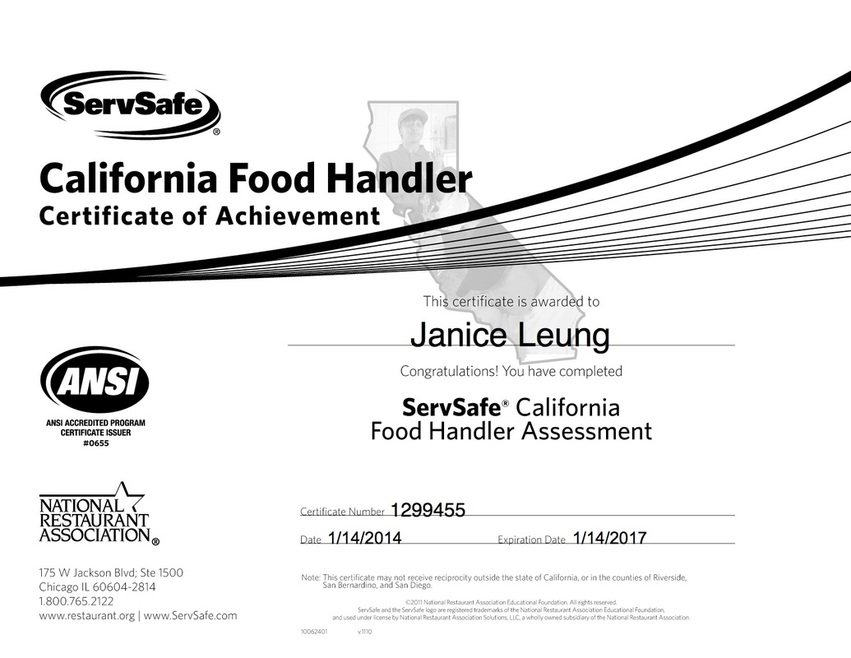The Tulsa County Food Handlers Permit is an essential certification for individuals involved in food preparation and handling within Tulsa County. By obtaining this permit, food handlers demonstrate their commitment to upholding food safety standards and protecting public health. This comprehensive guide will provide an in-depth overview of the Tulsa County Food Handlers Permit, including its significance, application process, training requirements, and ongoing compliance measures.
Tulsa County Food Handlers Permit Overview
A Tulsa County Food Handlers Permit is a legal requirement for individuals working in food service establishments within Tulsa County, Oklahoma. It demonstrates that the permit holder has received proper training in food safety practices and has passed an examination to verify their knowledge.
Obtaining a permit is crucial for ensuring public health and preventing foodborne illnesses. Food handlers who operate without a valid permit may face penalties and fines, and their establishments may be subject to closure.
Application Process

To apply for a Tulsa County Food Handlers Permit, individuals must complete the following steps:
- Obtain an application form from the Tulsa Health Department website or office.
- Complete the application form accurately and provide all required information.
- Submit the completed application form along with the following documents:
- Proof of identity (e.g., driver’s license, passport)
- Proof of residency in Tulsa County (e.g., utility bill, lease agreement)
- Pay the applicable application fee.
Training and Examination
Before applying for a permit, individuals must complete an approved food safety training course and pass an examination.
Approved training providers offer courses that cover topics such as foodborne illnesses, personal hygiene, food storage, and preparation techniques.
The examination consists of multiple-choice questions and must be passed with a score of 70% or higher.
Permit Issuance and Renewal
Once an application is approved, the Tulsa Health Department will issue a Food Handlers Permit. The permit is valid for one year from the date of issuance.
To renew a permit, individuals must complete a refresher training course and pass an examination within 30 days of the permit’s expiration date.
Failure to renew a permit on time may result in the suspension or revocation of the permit.
Inspections and Compliance: Tulsa County Food Handlers Permit

The Tulsa Health Department conducts regular inspections of food service establishments to ensure compliance with food safety regulations.
Inspections cover areas such as food handling practices, storage conditions, and equipment maintenance.
Establishments that fail to meet inspection standards may be subject to fines, closure, or other enforcement actions.
Resources and Support

The Tulsa Health Department provides various resources and support to food handlers, including:
- Training materials and online resources
- Technical assistance and guidance
- Complaint reporting mechanisms
Food handlers can contact the Tulsa Health Department for more information or assistance at (918) 595-4200.
Top FAQs
Who is required to obtain a Tulsa County Food Handlers Permit?
Anyone employed or volunteering in a food establishment within Tulsa County, including managers, cooks, servers, and dishwashers, is required to have a valid Food Handlers Permit.
What are the consequences of operating without a Tulsa County Food Handlers Permit?
Operating a food establishment without a valid permit can result in fines, license suspension, or even criminal charges. It also poses a significant risk to public health.
Where can I find approved training providers for the Tulsa County Food Handlers Permit?
The Tulsa Health Department maintains a list of approved training providers on its website. These providers offer courses that meet the required curriculum and examination standards.
How often do inspections occur for food establishments with a Tulsa County Food Handlers Permit?
The frequency of inspections varies depending on the type of food establishment and its compliance history. High-risk establishments, such as restaurants, may be inspected more frequently than low-risk establishments, such as grocery stores.
What are the potential consequences for non-compliance with food safety regulations?
Non-compliance with food safety regulations can result in a range of consequences, including permit suspension or revocation, fines, and closure of the food establishment.